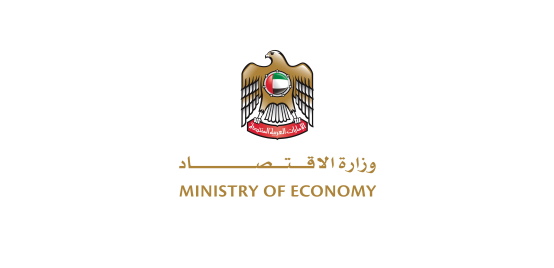The Ministry of Economy announced the launch of the geographical indications (GI) system for national products – the first-of-its-kind federal initiative designed to safeguard local products with unique features and characteristics that originate from specific geographical regions in the UAE.
The initiative aims to enhance the intellectual property (IP) protection framework for products with national identity and unlock new opportunities for UAE’s industries in global markets.
The launch event was organised by the Ministry in the presence of Lieutenant General Dhahi Khalfan, Deputy Chief of Police in Dubai, and Abdullah Ahmed Al Saleh, Under-Secretary of the Ministry of Economy, in collaboration with the Abu Dhabi Agriculture and Food Safety Authority, Dubai Municipality’s Food Safety Department, Ras Al Khaimah Department of Economic Development, the General Women’s Union, and the Environment Agency – Abu Dhabi.
The event was attended by over 200 participants, including senior officials, experts, specialists, and representatives from government and private sector entities, along with the local community and various institutions concerned with IP protection and sustainable development in the country.
The UAE, guided by its wise leadership’s vision, has adopted an ambitious vision to solidify its position as a global hub for the new economy based on knowledge and innovation, in line with the “We the UAE 2031” vision. The UAE has made IP protection and development of its legislation a national priority, serving as a key enabler for a creative and sustainable economy.
The launch of the GI system reflects the country’s commitment to protecting the cultural identity of UAE products, promoting them globally, converting them into economic assets that contribute to developing local communities and enhancing economic diversification.
The UAE continues to reinforce its IP legislative framework to enhance the competitiveness of the national economy in line with global best practices. A special chapter on geographical indications has been added to the trademark law, outlining mechanisms for their registration and protection, preserving the national identity of products and enhancing their competitiveness locally and internationally.
The launch of national products with geographical indication is a new milestone in offering comprehensive protection for trademarks related to geographic environments and national products that carry cultural and local identity. It unlocks new avenues for their growth and achieves the integration of economic, knowledge-based, and heritage-driven aspects.
GI tagging is an effective tool for elevating the value of UAE products in regional and global markets as it sets them apart. It also plays a key role in supporting agricultural and artisanal products, preserving traditional knowledge and boosting consumer confidence.
The Ministry of Economy developed this initiative in collaboration with specialised national entities, following a comprehensive approach that enhances flexibility of implementation and ensures the participation of local communities and producers in the development process. The Ministry will continue to expand the scope of GI registrations to cover new categories of eligible artisanal and food products, boosting their value in target markets.
Four national products included in the first phase of GI tagging were announced during the launch event. Efforts are currently underway to register and protect these products within the framework of the new system. These include: honey from the Hatta region, known for its superior quality owing to the mountainous environment and traditional production practices; ceramics from the emirate of Ras Al Khaimah, known for its long legacy in craftsmanship and handcrafts as one of the emirate’s most prominent exports; Dabbas dates from the Al Dhafra region, which carry an authentic agricultural character and distinguished reputation; and traditional palm frond products crafted across various emirates, reflecting the UAE’s authentic artisanal heritage.
The product registration service will be fully available online through the official website of the Ministry of Economy, which will begin accepting applications for GI registration from both within the country and abroad. The process will adhere to approved guidelines and standards that take into account the geographical, natural, and traditional attributes of each product. Currently, the Ministry is reviewing 25 additional products, including 13 food items and 12 handicraft products, in preparation for their registration. By the end of this year, the total number of products covered by the service is expected to reach six.
The registration of national products under the new GI system opens up broader export opportunities for them. The initiative aligns with the country’s efforts to promote tourism in unique destinations, achieve resource sustainability, and build a global reputation for national products, thereby reinforcing the strength and resilience of the national economy.
The event featured two panel discussions: the first highlighted several leading global experiences in GI tagging national products, while the second showcased successful national models that demonstrate the quality of GI tagged products and its positive impact on promotion, export, and national reputation. The Ministry of Economy also honoured the initiative’s partners during the event in appreciation of their efforts and active role in the development of the system.
The new GI system stands out as an effective tool that advances the country’s efforts to foster both individual and institutional innovation, while protecting intellectual property rights in the UAE in line with the nation’s broader aspirations to achieve the United Nations’ Sustainable Development Goals (SDGs).
In this regard, the protection of national products through GI tagging contributes to achieving Goal 8, which focuses on ‘Decent Work and Economic Growth,’ by stimulating local production, creating sustainable job opportunities, and increasing the economic value of products. It also supports the achievement of Goal 9 related to ‘Industry, Innovation, and Infrastructure,’ as it enhances the development of value chains in both traditional and modern industries, promotes innovation in production methods, and contributes to building a knowledge-based and quality-driven economy.
The World Intellectual Property Organisation (WIPO) in its World Intellectual Property Indicators report 2024 noted that there are more than 58,600 active geographical indications worldwide as of 2023. Europe led the way, accounting for 52.5 percent of registered geographical indications globally, followed by Asia with 39.5 percent.
The UAE’s Trademarks Law provides comprehensive protection for geographical indications, recognising them as a form of trademark linked to a specific geographic origin that grants the product unique characteristics and distinctive quality. The law allows the registration of geographical indications as a legal right, ensuring their IP ownership and preventing their misuse by others in ways that could mislead consumers or tarnish the reputation of original products, provided they are protected in their country of origin.
The law protects registered products from imitation, counterfeiting, or any unauthorised use, including any misleading presentation or labelling that suggests a false geographic origin, as such actions negatively impact consumer awareness and the rights of producers. Additionally, the law prohibits the use of geographical indications in contexts deemed as unfair competition, in accordance with the Paris Convention for the Protection of Industrial Property and the international agreements applicable in the country, ensuring that national legislations align with global best practices in this field.
According to the Trademarks Law, a GI tagged product refers to any product originating from a WTO member country or a specific area or location within that region, where the product’s quality, reputation, or other characteristics are primarily attributable to its geographic origin. GI tags serve as a strategic tool to support Emirati products, help protect the nation’s identity and cultural heritage and solidify the UAE’s position on the global stage. They represent a link between the past and the present, contributing to economic sustainability by supporting traditional industries and local projects.
GI tagging also plays a crucial role in supporting entrepreneurs and small and medium-sized enterprises (SMEs) by providing sustainable economic opportunities, distinguishing their products in local and international markets, and contributing to the diversification of the national economy.
 UAE BARQ برق الإمارات – نبضك
UAE BARQ برق الإمارات – نبضك



